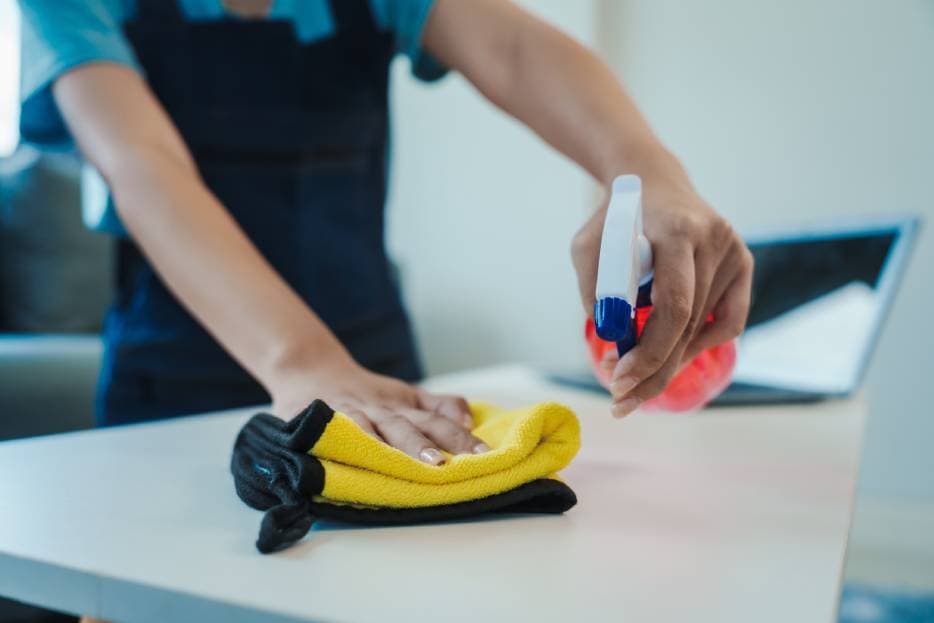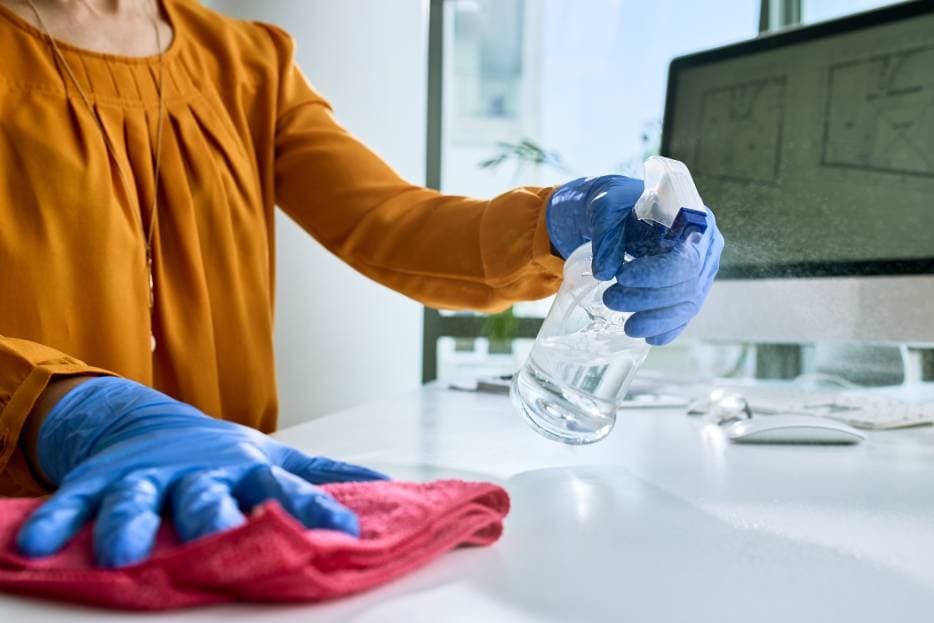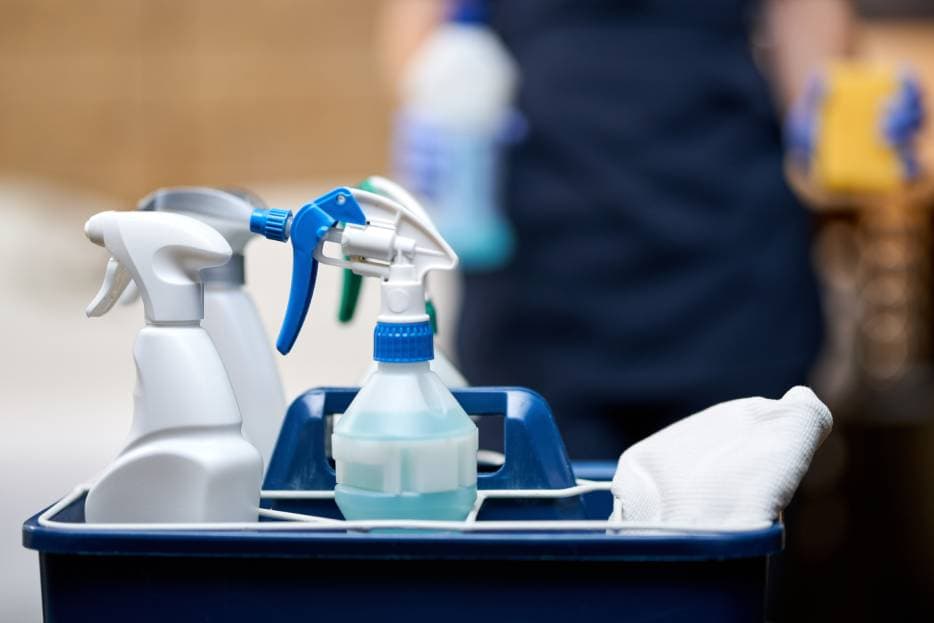In many organizations, the cleaning department is still viewed as a low-profile operational function. However, behind every hygienic and safe space there is a complex structure that demands technical knowledge, regulatory compliance, and specific protocols.
Cleaning services in Monterrey for offices no longer rely solely on mechanically performing tasks; they require the application of professional criteria that must be learned and perfected through structured training.
This is especially relevant in sectors such as food, pharmaceuticals, or logistics, since poorly executed cleaning can trigger regulatory failures, compromise product quality, or cause health incidents.
Therefore, proper training represents a significant investment that reduces operational risks, raises safety standards, and projects a corporate image aligned with efficiency, compliance, and professionalism, while also extending the useful life of your spaces through cleaning and preventive maintenance.
Importance of Optimal Cleaning Staff Training

Training cleaning personnel directly impacts the quality of the work environment and the safety of internal processes. It is not about cleaning faster or harder, but about doing it under technical and regulatory parameters, minimizing errors, waste, and hazards.
Proper training enables staff to identify delicate surfaces and materials, apply products without damaging facilities, and adapt routines based on each area’s risk level. In sensitive industries like healthcare or food production, this knowledge translates into preventing cross-contamination, passing external audits, and reducing regulatory penalties.
A well-prepared team also fosters a culture of order, discipline, and responsibility. Companies with trained cleaning staff consistently experience lower accident rates, reduced turnover, and better perceptions from clients and visitors.
Core Knowledge to Include in Training

Before discussing certifications or regulations, every training program must guarantee a solid foundation of everyday applicable knowledge. This involves understanding that not all surfaces are treated the same, that there are specific protocols for restrooms, offices, kitchens, or warehouses, and that improper cleaning can damage facilities or produce adverse effects.
When hiring cleaning services in Guadalajara, you can be sure that staff must know how to read product labels, use correct dosages, and operate equipment such as industrial vacuums, polishers, or injection-extraction machines.
Training should also cover operational efficiency: how to optimize time, distribute tasks, organize cleaning carts, and log incidents. This not only improves outcomes but also reduces fatigue and enhances overall team performance.
Training in Occupational Safety and Hygiene Standards
When it comes to cleaning corporate environments, the safety component cannot be ignored, so training must cover risk identification and prevention:
1.- Occupational Risk Prevention (chemical, physical, biological)
Exposure to harsh chemicals, wet floors, sharp objects, or contaminated waste is part of the daily routine. Training must include recognizing these risks and the necessary practices to mitigate them. Habits formed by on-the-job experience cannot replace continuous, updated training.
2.- Handling Hazardous or Sensitive Waste
In companies generating industrial, biological, or pharmaceutical waste, improper collection poses health and environmental risks. Training must cover waste classification, collection methods, labeling, transport, and final disposal, all in compliance with official guidelines and sustainability practices.
3.- Use of Personal Protective Equipment (PPE)
Staff must know when to use each type of PPE, how to don it correctly, how to sanitize it, and when to replace it. They should understand the differences between reusable and disposable PPE and the proper storage conditions to maintain integrity.
4.- Applicable Mexican Official Standards (NOM)
Studying the relevant NOMs is mandatory in formal corporate settings. Key standards include:
NOM-017-STPS-2008 for the use of personal protective equipment.
NOM-018-STPS-2015 for the identification and communication of chemical hazards.
NOM-010-STPS-2014 for safety and hygiene conditions in workplaces with chemical agents.
Recommended Certifications and Training Programs
Beyond practical training, there are certifications that validate staff competencies and add documented value for clients, audits, or public tenders:
Courses from Public and Private Institutions Institutions such as ICAT, CONALEP, IMSS, and private training centers offer structured programs with modules on biosafety, technical cleaning, disinfection processes, workplace ergonomics, and sector-specific protocols.
CONOCER Certification CONOCER certifications provide an official endorsement of both practical skills and formal coursework, improving staff employability and raising your company’s standard in the eyes of regulators or demanding clients.
Internal Induction and Continuous Update Programs Each company should develop internal induction programs tailored to its processes, products, and spaces, along with semi-annual or annual update plans. These programs should include specific procedures, guided walkthroughs, incident handling, and supervised practical sessions. As we can see, discussing corporate cleaning means acknowledging an evident yet often overlooked reality: cleaning is a technical and regulatory component that underpins the daily operations of any organization. To believe that this function can be carried out in an improvised manner is to ignore the many risks and requirements it entails. A company that properly trains its cleaning staff not only avoids mistakes and sanctions, but also builds safer, more efficient environments that align with its organizational vision. More importantly, it contributes to dignifying a role that—far from being secondary—has become a fundamental pillar for corporate sustainability and reputation.
